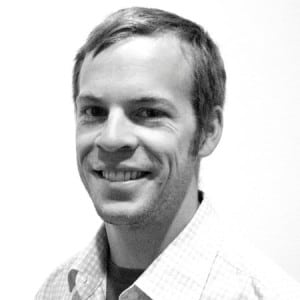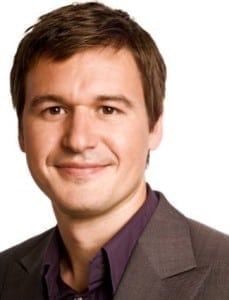Over the past decade, a growing segment of social entrepreneurs and small and growing businesses(SGBs) has emerged that seeks to utilize the power of invention to create products and companies that improve the lives of people living in poverty around the world. We call this class of entrepreneur – looking to develop and disseminate tangible products that will be manufactured and sold at high volumes via market mechanisms – an invention-based entrepreneur. The Aspen Network of Development Entrepreneurs (ANDE) believes that invention-based entrepreneurs are supported or impeded by a number of environmental factors, or the entrepreneurial ecosystem in which they work. While ANDE and our members have made significant progress toward strengthening these entrepreneurial ecosystems in emerging markets, invention-based entrepreneurs have a unique set of needs that differentiates them from typical SGBs.
This webinar focuses on what differentiates an invention-based entrepreneur from traditional entrepreneurs and highlights what support invention-based entrepreneurs require, what resources are available, what ecosystem level gaps remain, and what tangible actions can be taken to fill these gaps. It is based primarily on a series of roundtable discussions held in Brazil, India, Kenya, and South Africa, and is supplemented by both one-on-one expert interviews and quantitative survey data. Recommendations for this research include;
- Better mapping of available resources and effective dissemination of these resources will enable invention based entrepreneurs to navigate to the resources they need to grow.
- A community of those engaging in invention-based entrepreneurship, or interested in supporting it, must be created in order to facilitate continued knowledge sharing and collaboration.
- Universities need to be more entrepreneurial but cannot be expected to make this transition on their own.
- Corporate partnerships can benefit the ecosystem, but cannot be purely philanthropically motivated.
- Closing ecosystem gaps will help unlock financing and the financing gap is in many ways a manifestation of the other four ecosystems gaps.
Presenters:

Alex Pan is a program coordinator at the Aspen Network of Development Entrepreneurs (ANDE). In this position, Alex helps to manage ANDE’s global network of regional chapters and facilitates collaboration and knowledge sharing among ANDE’s 200+ members. He also manages ANDE’s initiatives to systemically address the talent gap for small and growing businesses and leads ANDE’s efforts to create a more supportive ecosystem for science, technology and invention based entrepreneurship in the developing world. Before joining ANDE, Alex worked for the White House Office of Science and Technology Policy. Alex is an M.A Candidate in International Science and Technology Policy at George Washington University and earned his B.A. from Colby College.
Mike Hahn is the Product Development Manager at Sanergy (Nairobi, Kenya) where he is developing the next generation of Fresh Life Toilet system and other products to enhance the Fresh Life brand. He is also a founding consortium member of Gearbox, Kenya’s first open space for design and rapid prototyping. He is especially hands-on, spending most of his time in the workshop producing prototypes and tooling for Sanergy’s needs. Hahn has a long history of fabrication experience in a wide range of manufacturing processes. Before Sanergy, he led sanitation product development processes for iDE, WSP, and UNICEF. He was a recent Fulbright Fellow in Cambodia and has focused on product design in developing countries throughout his career. Hahn holds a Bachelor of Fine Arts in Industrial Design from the Rhode Island School of Design.
Moderator:
Paul Scott is working within ASME’s “Engineering for Global Development” group to establish a social innovation program focused on providing hardware led social ventures with access to the financial, human and physical capital needed for innovators to navigate their “engineering journey”. Paul is a sustainability & global development specialist with experience in strategy, public private partnerships, global supply chains (ESG) and social entrepreneurship. Paul has worked across sectors and industries, holds an MPA from Columbia University and started life as a geographer (so knows every capital city and can color maps really well)!



Product and Market together make an impact. While Inventor is nearly best at invention, he/ she needs help in making it into a product by putting the invention through a standardized process, often expensive.
And the Market is altogether different game.
A means of collaboration for the inventor to get help for productization and then outreach to the market will be a great support.
Any suggestions ?